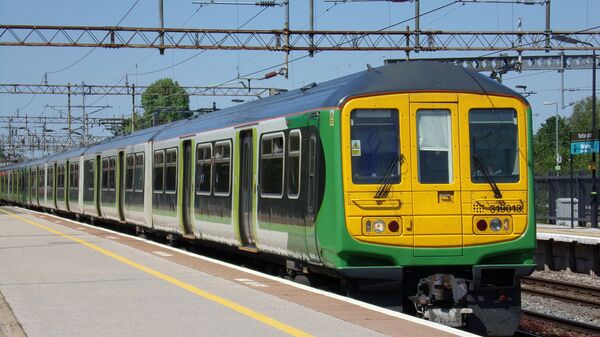In ‘Fair Deal for the Taxpayer: Why rail fares should be liberalised’, Dr Richard Wellings, Head of Transport at the Institute of Economic Affairs, calls for price controls on rail fares to be phased out, allowing train operating companies the freedom to offer far more flexibility in pricing in order to make better use of spare capacity on trains.
Why rail fares should be deregulated http://t.co/UX36NRT6Vq #rail #HS2
— Richard Wellings (@RichardWellings) February 11, 2015
He argues that by rejecting plans to introduce ‘super-peak’ fares on political rather than economic grounds, politicians have missed an opportunity to solve congestion problems. Such a policy would help ease pressure on commuter routes.
Since the part-privatisation of the UK rail industry (the infrastructure is state-owned, but the rail operators are all private) the government has regulated rail fares.
Why a more flexible approach to pricing could resolve many rail capacity issues: http://t.co/UX36NRT6Vq #HS2
— Richard Wellings (@RichardWellings) February 11, 2015
Wellings says the harmful effects of fare regulation have been made worse by the pegging of rail fares to the Retail Prices Index. If rail industry costs rise at a faster rate than inflation, the taxpayer is left to make up the difference.
He says the removal of price controls would reduce overcrowding, as train companies would have more freedom to offer passengers a better deal if they chose to travel at less popular times. Currently, rail users on long distance services wait until just after peak time ends, in order to take advantage of the immediate drop in price. A similar problem exists on commuter lines, with severe congestion occurring during the peak hour as passengers pay the same regardless of the time they travel.
Fears train fares will go up after report blames government regulation for overcrowding — http://t.co/zyTJWhYtHB pic.twitter.com/aZavEJRfQ6
— Latest news UK (@LatestNews_UK) February 11, 2015
Fears for Fare Hike
Wellings said: “Rail passengers and taxpayers continue to be left out of pocket thanks to the continual intervention of politicians in the sector. Far from protecting rail users, price controls have distorted demand, leading to intense overcrowding on certain routes whilst other services are left underused.
“Rather than proposing expensive infrastructure projects, which are extremely costly to the taxpayer, politicians should simply give train companies the freedom to set prices so that demand for rail travel can be spread more evenly.”
However, the report was criticised by the general secretary of the RMT transport union, Mick Cash, who called it “nonsense” saying it was more likely companies would simply hike up prices on profitable routes.
“The idea that complete deregulation of fares would solve the crisis on Britain’s railways is pure and utter nonsense. It would simply allow the greedy train companies to restrict services and whack up the prices on the profitable routes in an all-out free-for-all.”
The cost to the taxpayer of propping up the rail network is around £6 billion a year, accounting for 40 percent of all spending by the rail industry. Giving firms greater flexibility over prices could make improvements to the rail network commercially viable, reducing the industry’s dependence on government support and lowering the cost to the taxpayer.




